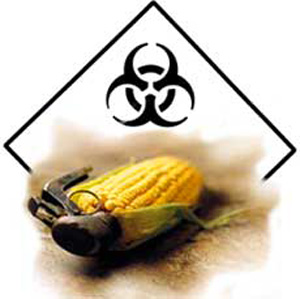Monsanto – Planting the seeds of death in India

Monsanto, the GMO (genetically modified organism) crop juggernaut that has, essentially, a patent on life. Their “Round-Up Ready” seeds, which resist the dousing of Round-Up, their herbicide which has been the #1 best selling herbicide in the US since around 1980. The active ingredient in Round-Up is glyphosat, along with the majority of other herbicides in the US, a molecule that Monsanto patented in the 1970’s and has been using ever since, despite numerous other countries having banned due to its toxicity profile against humans and other wildlife. Monsanto utilizes the isopropylamine salt of the glyphosate molecule along with surfactant POEA (polyethoxylated tallow amine, which increases the herbicidal penetration within plant and animal cells)). Monsanto can now thank the Chaos Theory, which should have been evident in the beginning, for all of the the “superweeds” that have developed an immunity, naturally, to Round-Up due to excessive and repeated application.
In the Republic of India, the seventh-largest country in the World, which has been famine-laden, primarily in Pakistan and Bangladesh, especially in the 18th and 19th centuries, farming is absolutely a necessity. Recently, after Monsanto made the guarantees to Indian farmers nothing less than phenomenal yields and profits, there have been a dramatic escalation of Farmer suicides due to the cost of Monsanto’s seeds on top of the cost of the Round-Up herbicide, neither of which annually mandatory purchases were sustainable by the Farmers in any South-Asian country. First you must purchase, annually (due to the inability to clean and reuse the ‘naturally reproduced’ seeds), the genetically modified seeds, then you must purchase the Round-Up herbicide, in which you pay an additional average of $6.50 fee per 50 lb bag of seeds for research and development. In the arena of natural seeds and crops you could utilize the cleaned seeds from the previous year’s harvest to plant the next year’s harvest. But not in the case of Monsanto seeds. And if you’re not growing Monsanto’s seeds on your farm, and the wind blows the seeds from a neighbor’s crops into your crops, and their seeds begin to grow, you will be sued by Monsanto, and essentially lose everything you own, including your land, your equipment, and your home, and they will win. Anyhow, I’ve drifted off-topic. There have been thousands of suicides in India due to the inability to afford the seeds and herbicide that they are now obligated to use.
Leave a Reply